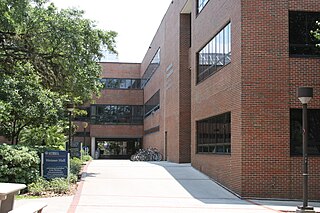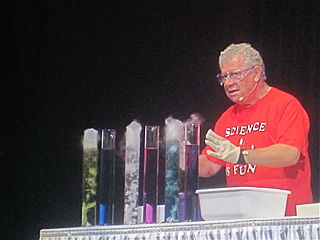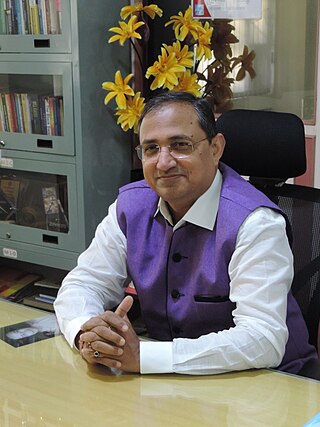A technical writer is a professional information communicator whose task is to transfer information between two or more parties, through any medium that best facilitates the transfer and comprehension of the information. Technical writers research and create information through a variety of delivery media. Example types of information include online help, manuals, white papers, design specifications, project plans, and software test plans. With the rise of e-learning, technical writers are increasingly becoming involved with creating online training material.

Robert Elliot Kahn is an American electrical engineer who, along with Vint Cerf, first proposed the Transmission Control Protocol (TCP) and the Internet Protocol (IP), the fundamental communication protocols at the heart of the Internet.

Communication studies or communication science is an academic discipline that deals with processes of human communication and behavior, patterns of communication in interpersonal relationships, social interactions and communication in different cultures. Communication is commonly defined as giving, receiving or exchanging ideas, information, signals or messages through appropriate media, enabling individuals or groups to persuade, to seek information, to give information or to express emotions effectively. Communication studies is a social science that uses various methods of empirical investigation and critical analysis to develop a body of knowledge that encompasses a range of topics, from face-to-face conversation at a level of individual agency and interaction to social and cultural communication systems at a macro level.
Technical writing is the writing of technical content, particularly relating to industrial and other applied sciences, with an emphasis on occupational contexts. The range of audiences for technical writing varies widely. In some cases, it is directed to people with specialized knowledge, such as experts or technicians. In other situations, technical writers help convey complex scientific or niche subjects to end users who need a basic understanding of a concept rather than a full explanation of a subject. Technical writing is the largest part of technical communication.
Technical communication is communication of technical subject matter such as engineering, science, or technology content. The largest part of it tends to be technical writing, though importantly it often requires aspects of visual communication. Technical communication also encompasses oral delivery modes such as presentations involving technical material. When technical communication occurs in workplace settings, it's considered a major branch of professional communication. In research or R&D contexts, it can overlap with scientific writing.
The Society for Technical Communication (STC) is a professional association dedicated to the advancement of the theory and practice of technical communication with more than 4,500 members in the United States, Canada, and the world. The society publishes a quarterly journal and a magazine eight times a year and hosts an annual international conference. STC also provides online education in the form of live Web seminars, multi-week online certificate courses, virtual conferences, recorded seminars, and more.
The American Medical Writers Association (AMWA) is a professional association for medical communicators, with more than 4,000 members in the United States, Canada, and 30 other countries. AMWA is governed by a board of directors composed of the elected officers, 6–8 at-large directors, and the chapter advisory council chair. AMWA has regional chapters and provides local networking opportunities throughout the United States and Canada. The association was founded in 1940 by physicians interested in improving the quality of medical writing and editing. The current president is Gail Flores, PhD.
Ann Rockley is a content manager. She is the founder and President of The Rockley Group, based in the greater Toronto Area. She regularly presents papers and workshops on subjects involving the efficient creation, management and delivery of content for organizations in North America and Europe. She was the lead analyst for The XML & Component Content Management Report on Content Management Systems Watch.
In technical communication, topic-based authoring or topic-based writing is a modular approach to content creation where content is structured around topics that can be mixed and reused in different contexts. It is defined in contrast with book-oriented or narrative content, written in the linear structure of written books.
The Institute of Scientific and Technical Communicators (ISTC) is the UK's largest professional association for those involved in technical communication and information design. It encourages professional education and standards, provides guidance about the value of using professional communicators, and provides research resources and networking opportunities for its members and affiliates.

Fred Newton Scott (1860–1931) was an American writer, educator and rhetorician. Scott received his A.B., A.M, and Ph.D from the University of Michigan. In the preface to The New Composition Rhetoric, Newton Scott states “that composition is…a social act, and the student [should] therefore constantly [be] led to think of himself as writing or speaking for a specified audience. Thus not mere expression but communication as well is made the business of composition.” Fred Newton Scott saw rhetoric as an intellectually challenging subject. He looked to English departments to balance work in rhetoric and linguistics in addition to literary study.

Mark L. Knapp is the Jesse H. Jones Centennial Professor Emeritus and a Distinguished Teaching Professor Emeritus at the University of Texas at Austin. He is internationally known for his research and writing on nonverbal communication and communication in developing relationships. He has also done research and published books on lying and deception. The Mark L. Knapp Award for career contributions to the study of interpersonal communication is awarded annually by the National Communication Association. The Mark L. Knapp Professorship, Moody College of Communication, University of Texas at Austin, was established in 2017.

The College of Journalism and Communications (CJC) is an academic college of the University of Florida. The centerpiece of the journalism programs at UF is WUFT, which consists of both a WUFT (TV) Public Broadcasting Service (PBS) Public television and WUFT-FM NPR public radio station. The commercial broadcasting radio station, WRUF, is also one of the oldest stations in the state.
SIGDOC is the Special Interest Group on Design of Communication of the Association for Computing Machinery (ACM), an international learned society for computing. ACM SIGDOC was founded in 1975 by Joseph "Joe" T. Rigo.

Bassam Z. Shakhashiri is a professor of chemistry at the University of Wisconsin-Madison, where he is the holder of the William T. Evjue Distinguished Chair. An active advocate for science education, he is the author of multiple books of chemical demonstrations. He was the 2012 president of the American Chemical Society and has received numerous awards and honors.
Janice "Ginny" Redish is an American usability writer and consultant. She graduated from Bryn Mawr College and holds a Ph.D. in Linguistics from Harvard University.
John Widdup Berry is a psychologist known for his work in two areas: ecological and cultural influences on behavior; and the adaptation of immigrants and indigenous peoples following intercultural contact. The first is broadly in the domain of cross-cultural psychology; the second is in the domain of intercultural psychology.

Satish Modh is an Indian author, independent researcher & professor of strategy. He was the former chairman of the Aeronautical Society of India, Mumbai Branch. Satish Modh has authored several pioneering books on strategic management, leadership, ethics, disaster management and conflict resolution. He has been considered by several leading newspapers to provide expert opinion on contemporary affairs related to economy, business, higher education etc. His latest book Discover the Arjuna in You published by Jaico Publishing House was well received among management students & stalwarts.

Laurence Barton more commonly known as Larry Barton is an American risk management consultant, author and professor. He served as the president of The American College from 2003 to 2013. Concurrent with his role at The American College, he is an expert guest speaker at The FBI Academy and at The U.S. Marshals Service.
Eduardo Salas is an American industrial and organizational (I/O) psychologist and human factors psychologist. He is the Allyn R. & Gladys M. Cline Chair Professor in the Department of Psychological Sciences at Rice University. Salas was a senior research psychologist and head of the training technology development branch of the Naval Air Warfare Center's Training Systems Division.